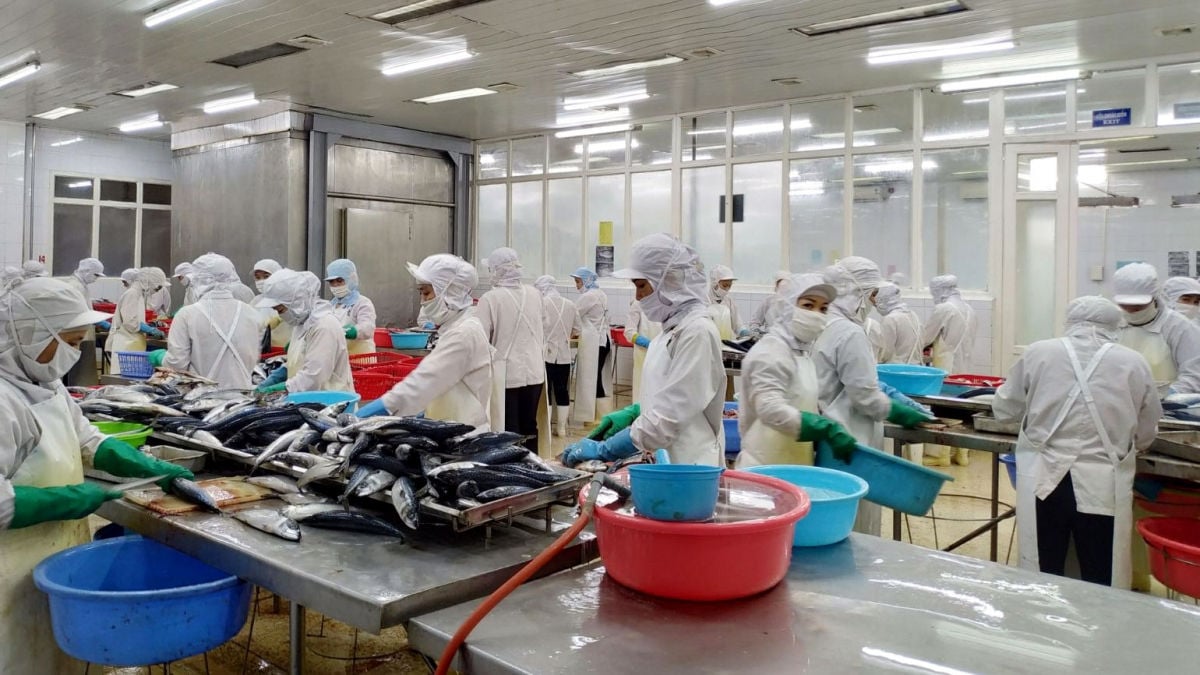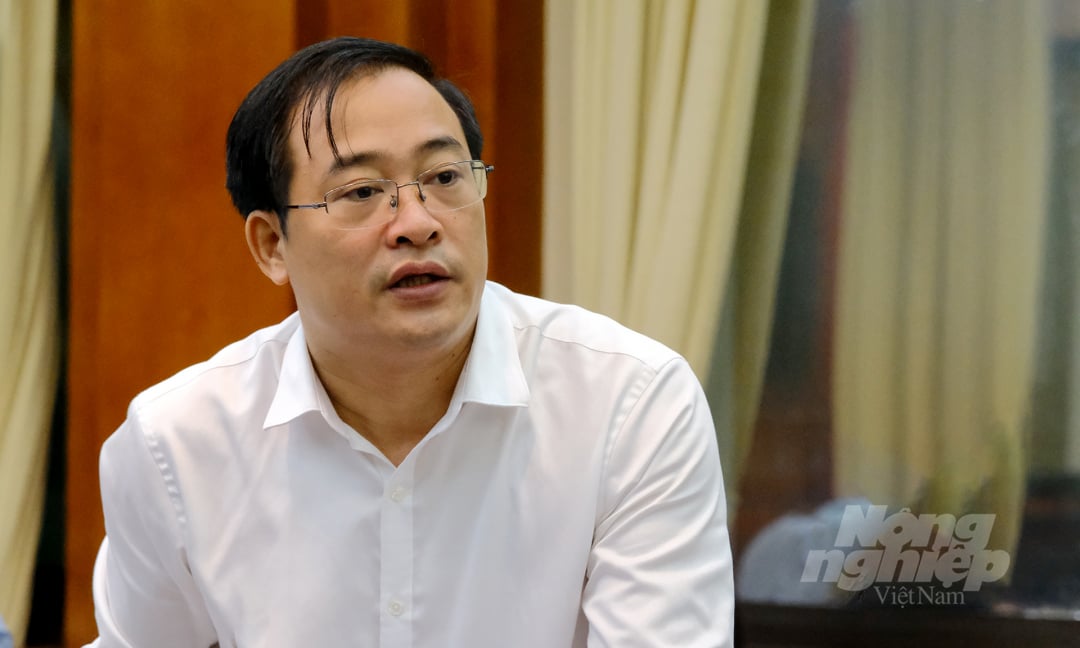June 14, 2025 | 12:23 GMT +7
June 14, 2025 | 12:23 GMT +7
Hotline: 0913.378.918
June 14, 2025 | 12:23 GMT +7
Hotline: 0913.378.918
Ho Chi Minh City and the River Delta, according to the Vietnam Association of Seafood Exporters and Producers, make up a significant portion of seafood export revenue. To achieve the USD 8.5 billion export goal for 2021, VASEP deputy general secretary Nguyen Hoai Nam splits these areas into three zones in order to be proactive in recovering output in new circumstances.
According to Covid-19 infection rates, vaccine registrations, laborer numbers, and other factors, zone 1 of the River Delta comprises six provinces: Ca Mau, Bac Lieu, Soc Trang, Vinh Long, Hau Giang, and Ben Tre. These provinces recorded low Covid-19 infection rates and also serve as a major shrimping hub, accounting for 30% of the sector's exports.
Nam explained that if everything goes well, six provinces in zone 1 would gradually return to normal production, which may aid in the recovery of seafood producers beginning in late September. Provinces' production capacity may be restored to approximately 60% in October and to 80% by the end of the year.

The seafood industry aims to export USD 8.5 billion in 2021. Photo: TL.
Zone 2 of the River Delta is comprised of five provinces: An Giang, Tra Vinh, Kien Giang, Can Tho, and Dong Thap, all of which have average or low infection rates and are home to many seafood processing companies, which account for 20% of the total industry. The group's manufacturing capacity is expected to return to approximately 50% by October and 70% by the end of the year.
The Zone 3 localities of Tien Giang, Long An, Binh Duong, and Ho Chi Minh City are characterized by a high incidence of Covid-19 infections and a slew of large businesses. According to Nam, if those areas maintain their success in pandemic prevention and response, they may recover between 40% and 60% of their population from October to year's end.
Along with the recovery plans, VASEP presented five suggestions to restore the seafood industry's growth rate to that of the beginning of 2021.
To begin, Nam said that many seafood businesses are in need of packaging owing to Ho Chi Minh City's social distance. As a result, he suggested MARD to compel the government, provinces, and cities to establish a more advantageous system of circulation and transportation.
Second, he suggested that provinces and cities agree on production standards for the new normals. Due to the high cost of Covid-19 testing, seafood processing and export businesses must develop a comprehensive strategy to calculate revenue and profit.

Nguyen Hoai Nam, Deputy Secretary-General of VASEP. Photo: Bao Thang.
Currently, the Ministry of Health does not have explicit guidelines for seafood businesses on how to guarantee safety, prevent, and manage disease outbreaks during production after social distancing.
Following that, VASEP proposes that the Covid-19 testing service be included in the group responsible for price stabilization, thus guaranteeing the Prime Minister's policy of "living with the pandemic."
Fifth, measures promoting output on both the supply and demand sides should be implemented.
70% of Southern factories shut down operations
Not only livestock husbandry and crop production are included in the pandemic-affected agriculture industry group, but also the fisheries sector. Over the course of two months of the blocakade, about 70% of factories in southern provinces and cities had ceased operations leaving around 300,000 on-site workers unemployed.
Costs associated with seafood processing and manufacturing have risen, with healthcare, Covid-19 testing, health assurance, and worker housing becoming fixed costs for companies. When facilities are maintained using the "three on-sites" approach, production costs rise by about 10-15%. This number may go up to 50% for factories that are not producing but must nonetheless satisfy fixed expenses.
"By mid-July 2021, the majority of people think the pandemic will have lasted about 2-3 weeks. Nobody expected the outbreak would continue until September. As a result, everyone is passive in this area. As a consequence of their inability to fulfill orders, seafood exports plummeted in August "Nam said.
Translated by Linh Linh
/2025/06/13/5330-2-004539_953.jpg)
(VAN) Changing policy mindset and removing investment barriers are urgent requirements to open up new development space for enterprises in the agricultural sector.

(VAN) The areas include the restoration of five million hectares of marine ecosystems.

(VAN) Dr. Le Van Nguyen, Director of the Institute of E-Commerce Management (ECM), emphasizes the potential for green development through the cultivation of fruit trees, particularly in provinces such as Son La.

(VAN) VAAS and numerous Vietnamese enterprises have signed cooperation agreements with Japanese partners to promote agricultural technology and trade connectivity.
/2025/05/29/5625-12-214801_567.jpg)
(VAN) Provincial mergers in the Mekong Delta promise to streamline administration, expand inter-provincial raw material areas, and foster close linkages in agricultural value chains, benefiting both businesses and cooperatives.

(VAN) Merging Mekong Delta provinces contributes to the expansion of agricultural raw material areas, addressing previous constraints caused by provincial boundaries. Additionally, this expansion will reduce costs and strengthen linkages between businesses, cooperatives, and farmers.
/2025/05/29/1043-2-153730_145.jpg)
(VAN) The Government's policy to merge provincial-level administrative units opens up major opportunities for the Mekong Delta region to reshape its agricultural development strategy toward large-scale production, effective regional linkages, and sustainability.